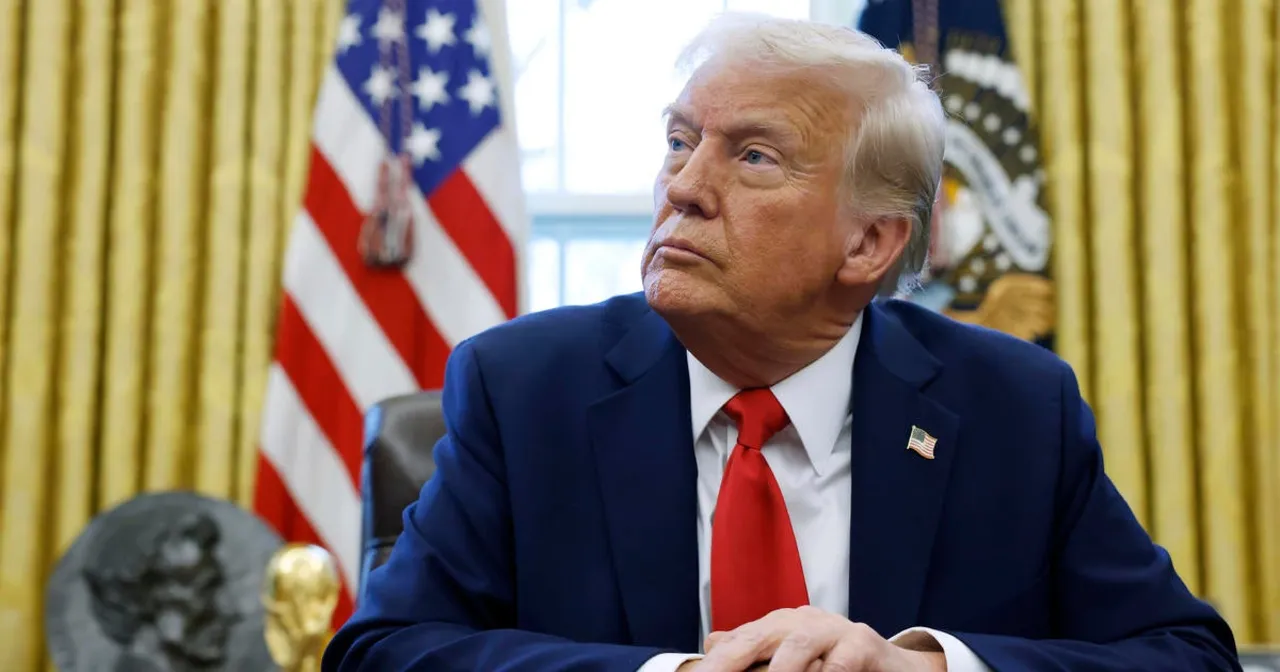
President Trump has issued a directive for U.S. government officials to prioritize the resettlement of South Africans of European descent through the U.S. refugee program, a program he had suspended on his first day in office. This move was formalized in an executive order where President Trump accused the South African government of discriminating against Afrikaners, an ethnic group of South African descendants of European colonists, predominantly from the Netherlands.
Historically, White South Africans of European descent ruled South Africa up until the 1990s, enforcing the oppressive apartheid system against the Black majority. In the executive order, President Trump claimed that these White South Africans are now subject to oppression by the South African government, citing a law that, according to influential figures like Trump adviser Elon Musk, permits racially motivated seizure of land owned by White South Africans. It is relevant to note that Elon Musk was born in South Africa.
The South African government has strongly denied any claims of land confiscations or racially motivated discrimination. According to the government, the law in question targets unused land or land not serving the public interest. Despite these denials, President Trump's order tasked Secretary of State Marco Rubio and Homeland Security Secretary Kristi Noem with prioritizing humanitarian relief services, including the resettlement of Afrikaners in South Africa affected by unjust racial discrimination, through the United States Refugee Admissions Program.
While President Trump's directive focuses on the resettlement of Afrikaners, the enactment details remain vague, especially since refugee arrivals have been halted by his administration. An executive order signed by the President on January 20 argued that refugees place a burden on receiving communities, suggesting that the refugee program would only resume if it benefits U.S. interests. However, the order does allow for case-by-case exemptions to the freeze in refugee arrivals.
The U.S. refugee program is traditionally designed to provide a safe haven for individuals fleeing persecution based on race, religion, political views, or other reasons. Typically, these refugees are referred to the U.S. by United Nations officials and must undergo extensive interviews and checks in third countries before receiving U.S. entry approval. Historically, most refugees admitted through this program come from African and Asian countries facing ethnic strife, war, or repression of minority groups.
President Trump's order also halts any aid to South Africa as long as its new land-reform law remains in place, raising concerns about the U.S.'s AIDS response program, PEPFAR. PEPFAR provides critical HIV treatment to millions, including children, in several African countries. Although the Trump administration had paused all foreign aid, including for international humanitarian and medical efforts, a waiver from Secretary of State Marco Rubio last weekend allowed certain programs, like PEPFAR, to resume, albeit with continued distribution delays.
Beyond accusations of racial discrimination, President Trump criticized South Africa for taking allegedly aggressive positions towards the United States and its allies. He referenced the country's legal actions in the International Court of Justice, claiming Israel's involvement in genocide against Palestinians. This complex geopolitical issue adds another dimension to the evolving U.S.-South Africa relationship.